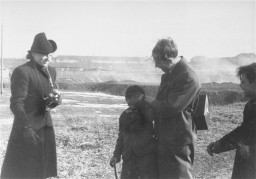You searched for: ������������������������������������wjechac���kaa2238���echo
<< Previous | Displaying results 1-10 of 10 for "������������������������������������wjechac���kaa2238���echo" | Next >>
-
World War I
SeriesThe trauma of WWI would profoundly shape the attitudes and actions of both leaders and ordinary people during the Holocaust. Learn more about the war and its aftermath.
-
Erich Maria Remarque: In Depth
ArticleIn 1933, Nazi students at more than 30 German universities pillaged libraries in search of boo...
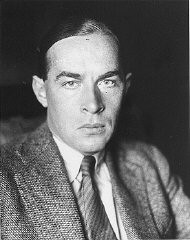
-
The Biological State: Nazi Racial Hygiene, 1933–1939
ArticleBetween 1933-1939, Nazi eugenics and racial hygiene led to policies like mass sterilization and criminalizing marriage between Jews and non-Jews.
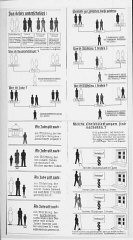
-
The International League Against Anti-Semitism in North Africa
ArticleThe International League Against Anti-Semitism in North Africa (LICA) was created in 1929 as a Jewish-Muslim partnership to combat racism and antisemitism.
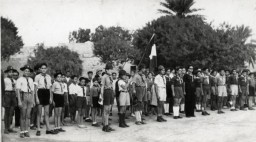
-
World War I
ArticleThe experiences of World War I and its aftermath would profoundly shape the attitudes and actions of leaders and ordinary people during the Holocaust.
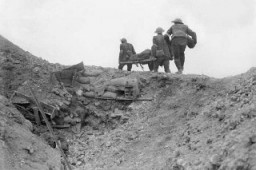
-
Law, Justice, and the Holocaust
ArticleLearn about the role of the legal profession as the Nazi leadership gradually moved Germany from a democracy to a dictatorship.
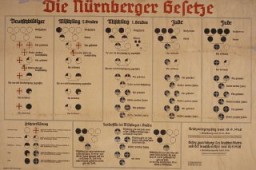
-
The Nazi Olympics Berlin 1936
ArticleThe 1936 Olympics in Berlin under Adolf Hitler's Nazi dictatorship were more than just a worldwide sporting event, they were also a show of Nazi propaganda.
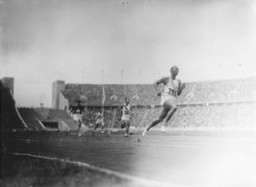
-
Leo Melamed describes saying goodbye to father as he fled Bialystok
Oral HistoryLeo was seven years old when Germany invaded Poland in September 1939. Before the war, Leo's father was a mathematics teacher and member of the Bialystok City Council. Fearing arrest, Leo's father fled Bialystok for Vilna just before the German occupation. Leo and his mother eventually joined his father in Vilna. After the Soviets occupied Vilna, Leo's father obtained transit visas to Japan. The family left Vilna in December 1940, traveled across the Soviet Union on the Trans-Siberian Express, and arrived…
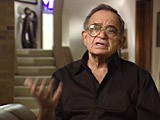
-
Jews of the Maghreb on the Eve of World War II
ArticleLearn about the diverse Jewish population of North Africa on the eve of World War II.
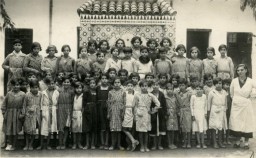
-
Robert Ritter
ArticleRobert Ritter was a German doctor whose work helped drive the development of the Nazi regime’s anti-Romani policies of persecution and genocide.
